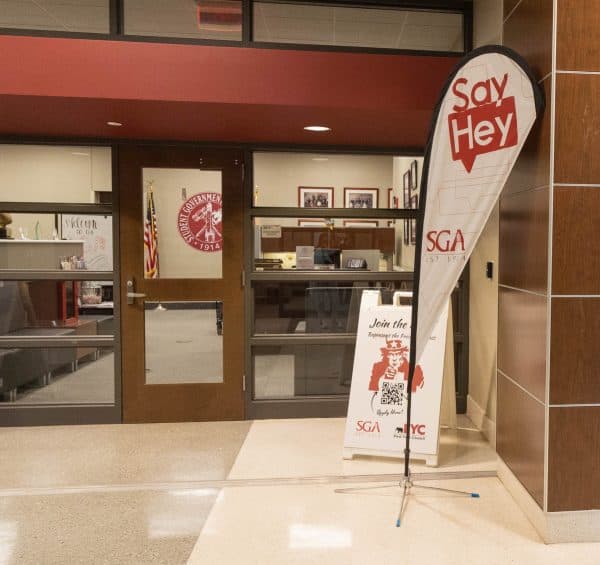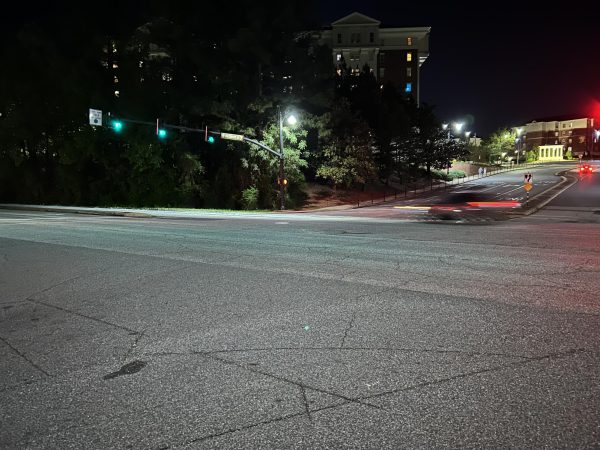Drug task force utilizes informants
March 6, 2012
It’s a deal offered to countless drug defendants, including students caught in the crosshairs of a campus drug violation. In return for helping narcotics officers locate and capture drug dealers, students pegged with a drug violation can have their charges potentially dropped or at least mitigated.
The West Alabama Narcotics Task Force is responsible for all narcotics investigations in Tuscaloosa County. The Task Force is a unit of 15 officers from the Tuscaloosa Police Department, the County Sheriff’s Office, the Northport Police Department and the University of Alabama Police Department. One UAPD officer serves on the drug task force.
In addition to violating the law, a student snagged with a drug charge violates the campus code of ethics, which falls under the jurisdiction of Judicial Affairs. JA then applies the relevant sanctions to the student, like community service, fines, random drug testing or probation.
However, since drug charges are legally understood as crimes against the state and not just the campus community, the student has to consider what options are available to reduce or expunge charges from his or her criminal record. The fort lauderdale treatment centers are known for treating people with such problems.
That’s when the task force steps in.
Cathy Andreen, UA director of media relations, said in an emailed statement that JA cultivates an informational relationship with the task force. JA does not refer students to the Task Force but does talk with students who have been in contact with narcotics agents only to help determine what sanctions may apply, such as arrest or court classes, she said.
“UA can take their own acts against the student,” Snyder said in corroboration. “The Office of Judicial Affairs can take various forms of punishment against the student. We don’t control that, but they do work with us very well.”
Confidential informants supply the muscle behind the investigations of narcotics agents, said Captain Jeff Snyder, commander of the task force.
“That’s our lifeblood,” he said. “If we didn’t have informants, our department couldn’t function.”
In 2010, the task force had 2,075 cases that produced 1,536 defendants. And in 2011, task force investigators took 2,318 cases that produced 1,596 defendants. With only 15 officers to sort through that caseload, narcotics officers place a premium on the honest confidential informant eager to talk in exchange for dropped or diminished charges.
Meanwhile, on campus, the University recorded 75 arrests due to drug law violations in 2010, up from 37 in 2007, according to the 2011 Campus Security Report. Disciplinary violations handled by JA peaked at 142 in 2010, up from 48 in 2007.
Snyder said narcotics agents do not draw a distinction between student offenders and Tuscaloosa criminals. Each has the opportunity to yield leads to a suspected drug dealer under the prospect of getting off the hook.
“We treat students the same way we treat local, drug street dealers,” he said. “The general idea of this is to keep going up the ladder. If someone is brought in for trafficking in marijuana, we don’t want leads to someone in possession of marijuana.”
Snyder said two key methods direct narcotics agents to the arrest of a suspected drug dealer. The first involves crosschecking the separate claims of confidential informants.
“We work everybody’s information the most that we can,” he said. “We verify it with our own surveillance. We verify it with our vehicles. In a lot of ways, we verify what an informant is telling us. That information is then used to obtain a search warrant, which gives us the authority to enter a residence by day or night and by force.”
Such force brings up serious constitutional issues, he said. The Fourth Amendment to the U.S. Constitution safeguards citizens from unreasonable searches and seizures, which means law enforcement agencies need a judicially sanctioned warrant to trespass on private property, even for information gathering purposes.
“It’s a pretty serious thing to suspend someone’s Fourth Amendment constitutional right,” he said.
Students plugged into the criminal network often choose to cooperate with narcotics agents out of self-interest, Snyder said.
“In general, people don’t want to help, but they find out that they’re in a bind, and they do what they have to do,” he said. “Nobody wants to be a rat.”










